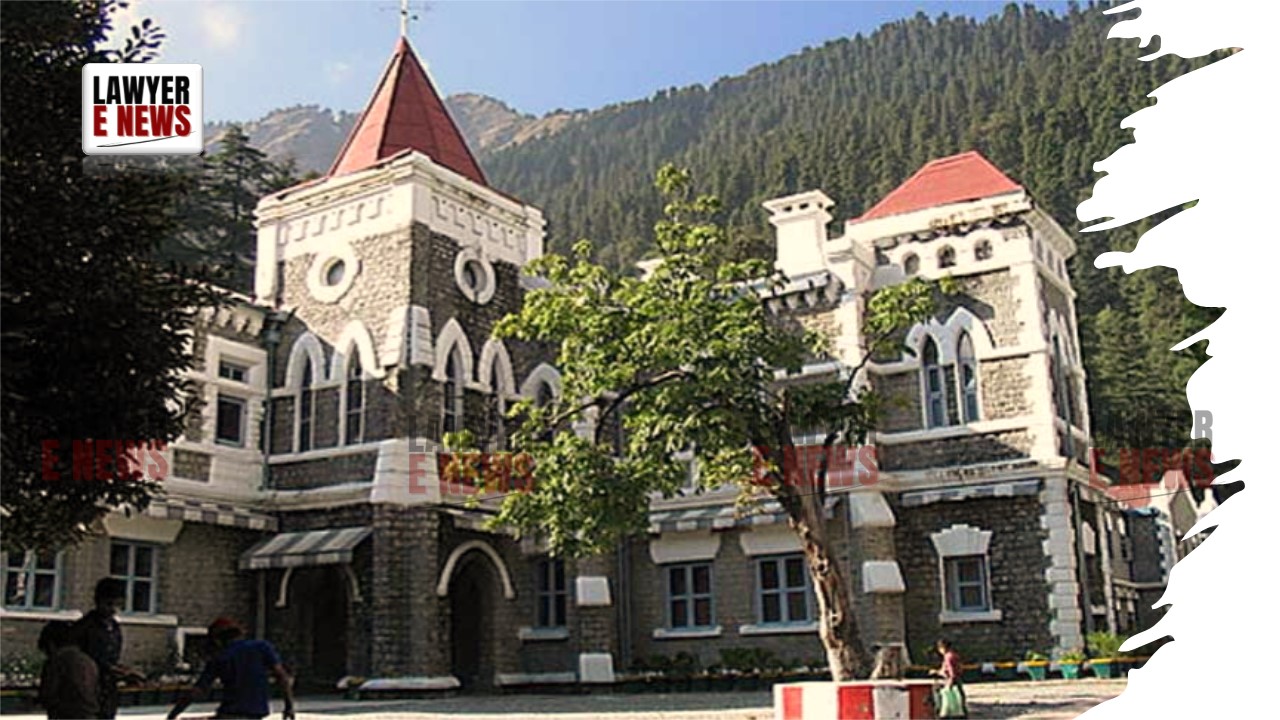-
by Admin
15 February 2026 5:35 AM



In a recent judgment, the Uttarakhand High Court dismissed a writ petition challenging the mutation of property ownership in the revenue records, underscoring that such entries are fiscal in nature and do not determine title rights. The ruling, delivered by Justice Rakesh Thapliyal, emphasized that disputes over property ownership should be settled in civil courts rather than through revenue records.
The petitioners, Ashutosh Sharma and another, contested the mutation of property owned by their late father, Bhushan Sharma, which was bequeathed to Madhav Samarpan Samiti through a Will dated October 25, 1995. The petitioners claimed a subsequent Will dated September 20, 2000, in their favor, and argued that the mutation proceedings were conducted without their knowledge or involvement. They sought the quashing of multiple orders passed by revenue authorities, which upheld the mutation in favor of the respondent.
The High Court reiterated the summary nature of mutation proceedings, clarifying that such entries in revenue records serve fiscal purposes only and do not confer title. “An entry in revenue records does not confer title on a person whose name appears in record-of-rights,” noted Justice Thapliyal, citing established precedents.
Justice Thapliyal emphasized that disputes over property ownership should be resolved in civil courts. “The findings recorded in mutation proceedings are for the limited purpose of correction of revenue records and do not have any presumptive value on a question of title,” he stated, directing the petitioners to seek a civil court’s intervention to adjudicate their claims.
The petitioners contended that they were unaware of the mutation proceedings and only discovered the mutation order later. They filed a restoration application, which was dismissed on grounds of limitation. The court noted that the petitioners had not filed any mutation application based on the subsequent Will and had not been parties to the original mutation proceedings initiated by the respondent.
The court addressed the petitioners’ argument regarding the validity of the subsequent Will. Justice Thapliyal observed that the petitioners failed to challenge the earlier Will or file a regular suit for declaration of their rights based on the subsequent Will. He highlighted that the petitioners’ attempt to recall the mutation order without challenging the initial Will or seeking a declaration of their title through a civil suit was procedurally inappropriate.
Justice Thapliyal remarked, “The mutation proceedings are summary in nature and do not confer any title over the property. The only remedy available to the petitioners is to approach the civil court either to challenge the Will dated 26.10.1995 or to file a regular suit claiming title over the property on the basis of the subsequent Will.”
The Uttarakhand High Court’s dismissal of the writ petition reinforces the principle that mutation entries in revenue records are not determinative of property ownership. By directing the petitioners to seek recourse through civil litigation, the judgment clarifies the appropriate legal channels for resolving disputes over property titles. This decision is expected to have significant implications for similar cases, affirming the judiciary’s stance on the summary nature of mutation proceedings and the necessity of civil court adjudication for title disputes.
Date of Decision: August 1, 2024
